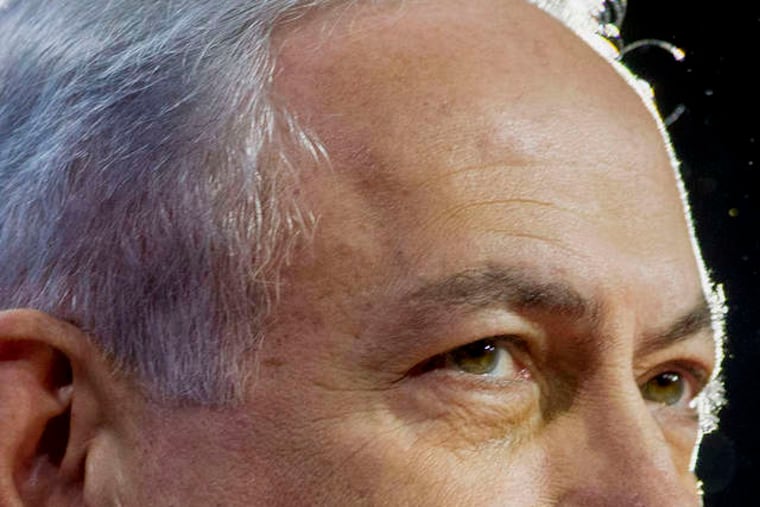Israeli election tightens; polls show Netanyahu trailing
JERUSALEM - With less than a week remaining before Israel's elections, the race appears tighter than it has at any time since the start of the campaign, throwing Prime Minister Benjamin Netanyahu on the defensive.

JERUSALEM - With less than a week remaining before Israel's elections, the race appears tighter than it has at any time since the start of the campaign, throwing Prime Minister Benjamin Netanyahu on the defensive.
Three polls published Tuesday and Wednesday show Netanyahu's conservative Likud Party lagging by margins of three to four parliamentary seats behind the center-left Zionist Union alliance.
That gives Labor Party leader Isaac Herzog, who formed the Zionist Union alliance with former Justice Minister Tzipi Livni, a fighting chance of unseating Netanyahu, who is seeking an unprecedented fourth term.
Analysts caution, however, that the key to Herzog's success will be his ability to cobble together a parliamentary coalition from an unwieldy collection of smaller parties, some of which have openly rejected partnerships with one another. That test will come after Tuesday's balloting.
Herzog said he was up to the challenge. "I've proven that I know how to bring distant people together, that I know how to make connections, and that I have the required political skills," he said.
With both Likud and the Zionist Union projected to win no more than 25 seats each in Israel's 120-member parliament, Netanyahu and Herzog will compete to enlist enough smaller parties to form a majority in the legislature. In Israel's political system, the leader with the greatest chance of putting together a viable coalition traditionally gets the nod from the president to try to form a government.
While Netanyahu is seen to have a numerical edge in forming a coalition with rightist, center-right, and ultra-Orthodox parties who are his natural allies, a stronger showing by the Zionist Union may give Herzog a first crack at forming a government, drawing smaller parties to him.
Recent polls suggest momentum has shifted toward the Zionist Union, reflecting what analysts say is a desire for change among many voters, even as polls show that more Israelis consider Netanyahu more qualified than Herzog to be prime minister.
Rafi Smith, a prominent pollster, said that Likud had been losing voters to other rightist and right-of-center parties, while the Zionist Union had maintained its strength throughout the campaign.
"The Zionist Union is drawing votes while the Likud is leaking votes," Smith said. Still, he added, negative feelings toward Netanyahu have not translated into "positive enthusiasm" for Herzog, which would catapult him into a commanding lead.
Lacking the charisma and dynamism of other politicians, Herzog, 54 - a lawyer, former cabinet minister, and son of Israel's sixth president - has worked hard to make himself a more convincing candidate to ordinary Israelis.
For Likud, the release of the latest poll numbers have set off alarms.
Yisrael Katz, a party leader and a minister in Netanyahu's departing cabinet, acknowledged Wednesday on Army Radio that "there is definitely a real concern, to be frank," about the slide in support. A text message to Likud supporters warned that the party was in real danger of losing the election.